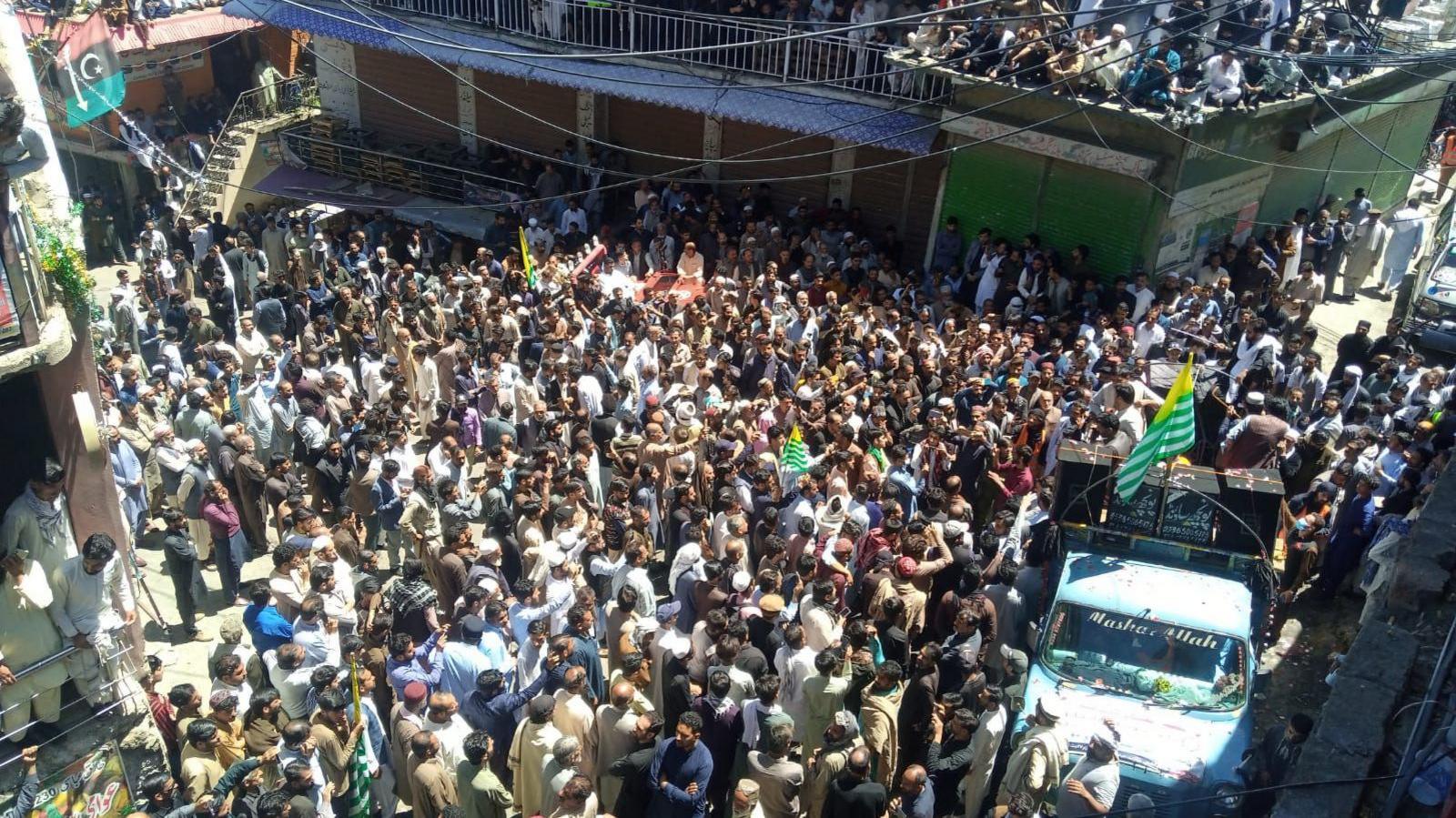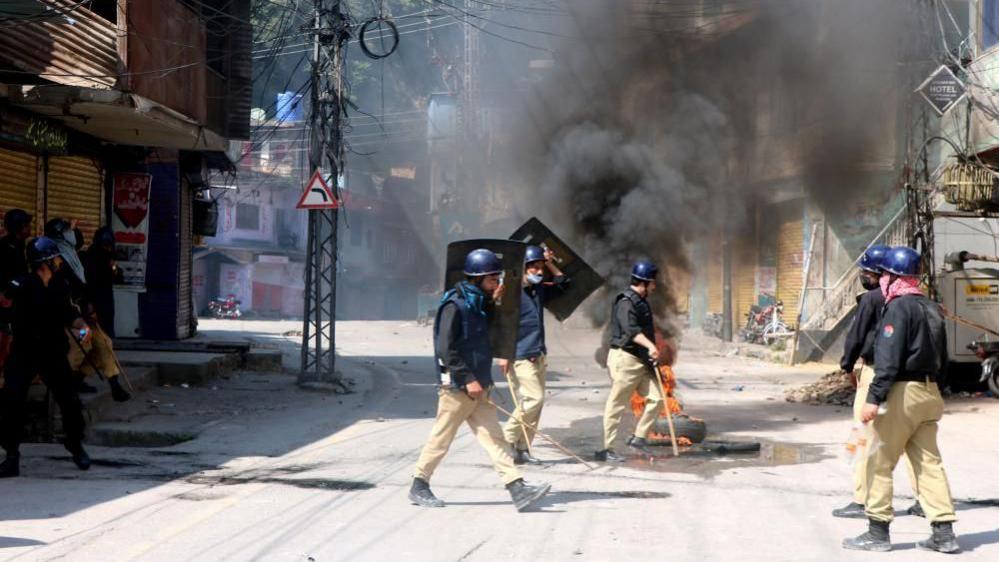Four dead in protests against flour and energy prices

Protest organisers have declared a "Black Day" on Tuesday to mourn those who died
- Published
Four people have died and 100 others were left wounded after violent clashes with authorities in Pakistan-administered Kashmir.
Thousands of people have been on the streets since Friday to protest rising prices of flour and electricity.
Organisers called off the protests on Tuesday, a day after Pakistan's PM Shehbaz Sharif offered subsidies worth 24 billion rupees ($86m; £69m).
"The government has accepted all of our demands," said Shaukat Nawaz Mir, one of the activists leading the demonstrations.
Mr Mir had also demanded that the government offer financial compensation for the families of those killed in the violence.
Violence had intensified since the weekend, prompting authorities to cut mobile services.
Schools, public transportation and businesses have also been suspended.

The detention of protest leaders over the weekend had fuelled further violence
On Monday, authorities sent paramilitary troops known as rangers into the regional capital, Muzaffarabad.
Footage of the protests show both sides hitting at one another with rods. Reports said the paramilitary troops also fired bullets and lobbed tear gas at protesters.
One of the four who died was a police officer, authorities said.
At least two of the casualties had died from gunshot wounds, AFP news agency reported, citing a doctor at the Combined Military Hospitals in Pakistan.
"[The rangers] should not have shot at the protesters. We were just asking for our rights and got bullet shots in return," Muhammad Qasim, a 37-year-old shopkeeper, told AFP.
The Joint Awami Action Committee, an activist group that initiated the protests, declared Tuesday a "Black Day" to honour those who died.
Pakistani-administered Kashmir is a semi-autonomous region with its own regional government.
Kashmir has been a source of conflict between India and Pakistan for more than 70 years.
Delhi and Islamabad both claim the Himalayan region in full, and have fought two wars and a limited conflict over Kashmir. Today, each of the neighbours control only parts of it.